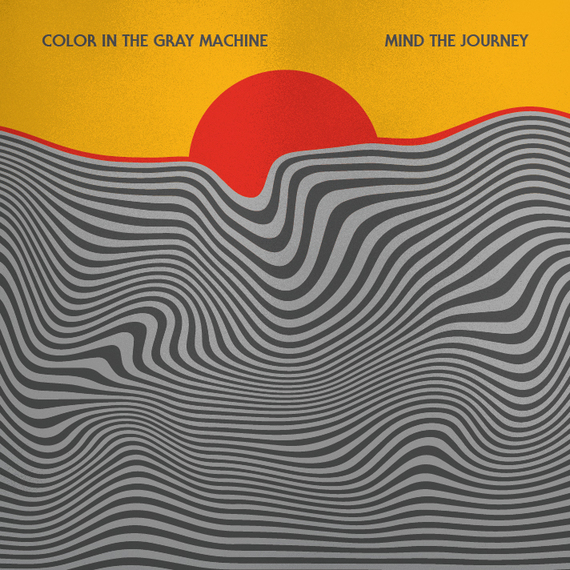Nashville-bred musician Billy Crain is the consummate sideman who can effortlessly pick up a guitar and jump into many styles. He's shared the stage with the Rolling Stones and Allman Brothers band but also the Dixie Chicks, for whom he co-wrote "Let 'Er Rip." His bio speaks more to his humanitarian efforts and the children he's fostered, so "Family Matters," his new solo album, feels less like a generic platitude than a creed that he lives by. He plays all the instruments, which include plenty of guitars and more than a couple rollicking piano solos. The latter made me think of the Band and the way Rick Danko poured his soul into each and every black and white key on his Hammond organ. The album kicks off with a festively melodic riff on "Dark Horse" reminiscent of the Pogues and ends with an epic chord progression on "1928" that made me think of Billy Joel's "Movin' Out." In between there are bits of country twang, straight-ahead rock phrasing and even a little modern pop in the bright chord progression on the title track. With a wide range of influences, this could easily come out sounding directionless but coalesces around the easy at which he plays each note.
I wish I could say the same for Andy Evans' aimless "Miracle, which feels like the sonic equivalent of a nomad wandering through an expansive desert. He begins in the easy listening world of Jack Johnson and Amos Lee on the title track, stumbles into a big band and country mash up on "Shape of Love," and tries out the distortion pedal on the tritely titled Led Zeppelin attempt, "Judas." It's not until the album nears its end that he finds his way with "Elemental," which taps into a confessional blues mood that Eric Clapton modernized. It a simple, deeply felt love song that leaves space for Evans to pour himself into seamlessly integrated guitar licks and lyrical phrases like "Love's like a river and I long to feel the flood."
Plastic Yellow Band, a nod to John and Yoko Ono's experimental Plastic Ono Band, is the creation of songwriter Gerry Jennings. Existing as a particularly indulgent moon orbiting the planet of prog rock, Its new album, "Above Gravity," is less experimental in structure and form than in the way it pushes the boundaries the listener's patience. The opening track, "Starlight" is a whopping 21-minutes long and lacking of a progression or depth to warrant its length. The other tracks are much shorter but feel numbingly hollow with derivative Lennonesque echoes - "give peace a chance" can be heard on "Two Virgins." This is a shame because when Jennings lets loose on tracks like "When I Rock," it's revealed that he's quite a good guitarist.
Tomas Doncker channels James Brown and Maceo Parker as he gives a musical voice to the searing and urgent messages of the Black Lives Matter movement. His incendiary new album, "The Mess We Made" was informed by the murders of Eric Garner, Trayvon Martin, Michael Brown, Freddie Gray and countless others but its spark of creation came on the day of the senseless Charleston massacre. He describes being "overwhelmed with rage, hatred, confusion, disillusionment" - all of which can be heard in the furiously syncopated tracks. An angry chorus chants "take your hoodie off and pull your pants up" in a loop that uses repetition to create a catchy momentum that briefly subverts the fury that pulses throughout. In another moment he sings "ain't supposed to die a natural death," most likely a nod to Melvin Van Peebles' 1971 dark musical that painted an unflinching portrait of inequality. Doncker's album feels both painfully of the moment and utterly listenable. There are moments like on the title track on which he croons about his smart phone that feel jarringly out of place, but it doesn't pierce the vibrant world he's created to deliver an urgent message. And with all the pointed grooves, it's the ballad "Don't Let Go" that makes the most vivid plea.
Mind the Journey's debut LP release, "Color in the Gray Machine" (which comes out next Tuesday), has just enough quirk to make it pop without feeling affected. The opening track, "Falling Asleep," is 22 seconds of ambient noise. This fades into one of the album's most memorable tracks, "Desserts," which is anchored by dual keyboard and organ chord progressions that dovetail in sublime counterpoint. Pronounced syncopation drives the album's twelve tracks, so it's no surprise that the man behind MTJ first came to music through playing the drums. Once he discovered the keyboard, Spencer Sabo became a one-man band. There are plenty of electronic interludes that bring to mind early Aphex Twin, but Sabo's vocals have a beautiful strain more akin to Jeff Buckley and Thom Yorke. "Rose Colored Glass" is broken up into movements not unlike Radiohead's "Paranoid Android." The second of these is rooted in a simple chord progression that's teased out through a well-placed effect distortion the highlights the melody and atmosphere. "Color in the Gray Machine" displays restraint and innovation in equal measures, making for a quite pleasurable trip.
